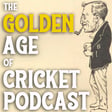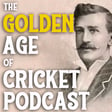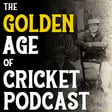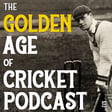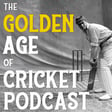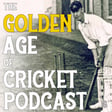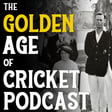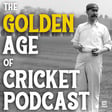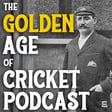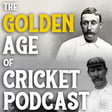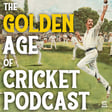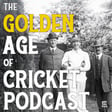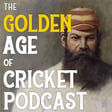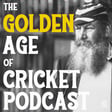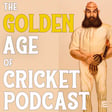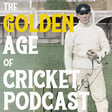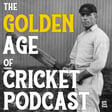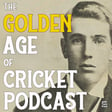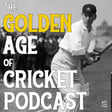Confusion in Tournament Structure
00:00:08
Speaker
Let's return just briefly again, Patrick, to the structure of the tournament. So the tournament begins and you go through month by month, um both talking about each country's first class matches and then obviously the test matches. And it does become apparent both to the reader, but obviously to the people at the time, the cricket fans, the journalists, that they hadn't worked out this point system.
00:00:34
Speaker
I think it's... By the third or fourth test match, suddenly, and think it's the journalists who want to record, obviously, the matches and the progress thing, how are they going to work out the champion the champion of this tournament?
00:00:47
Speaker
um I mean, how many points do you get for a win? How many for a loss? How many for a draw? What happens if the match is abandoned due to rain? So can you enlighten us? How did they eventually come to this system? And then how did they communicate it to the cricket fans?
England's Lead Amidst Unclear Rules
00:01:05
Speaker
As far as I can remember, I wrote this book some time ago, but as far as I can remember, it wasn't until the last test match that they said, well, we don't know who's won.
00:01:17
Speaker
um It was quite clear South Africa hadn't won because they'd lost, but they hadn't won any of their six games. And they, I think they drew two because of the rain. um But when they came to the the the final the ninth and final game, England had, let me think, they'd drawn both their games against Australia, I think.
00:01:39
Speaker
And England had beaten South Africa three times and Australia had only beaten them twice. So if you've been doing it on ah on a points thing, well, england England were ahead on points and only needed to draw the game to win the series, except there wasn't going to be a drawn game in the last one because they decided they would play it to a finish.
00:02:05
Speaker
They pretty much made it up as they went along said, let's play the last game to a finish and whoever wins it wins the series. so um They hadn't decided it's two points for a win, one for a draw, let alone bonus points or anything, yeah anything like that.
00:02:20
Speaker
No, they, they, I, I think, They'd been too busy with other things. It was an oversight. They'd never had a tournament before where you had to have some kind of system of assessing.
00:02:32
Speaker
And I think I said before, frankly, I don't think that anybody cared, really. they They just wanted to get the thing off the ground.
Weather Impact on 1912 Series
00:02:39
Speaker
though The people who were going to make the rules at the MCC or wherever, they weren't going to be worrying about such minor things of who who won and who lost and and working out a point system.
00:02:53
Speaker
They wanted to see those players on the field and, you know, all rubbing shoulders and here's the Imperial project, Germany, watch out. When someone first comes to learn about the 1912 Triangular Series, and it's I suppose it's fair to say subsequent failure as a tournament, one of the first reasons anyone reads about is that it was heavily affected by rain. 1912, you look at the weather, you look at the cricket matches, so many are abandoned or delayed.
00:03:24
Speaker
um Just how wet was England in the summer of 1912?
Players' Determination vs. Weather
00:03:29
Speaker
Very, very, very. um Well, one ah one of I think one of the most satisfying pieces of research I did, which is it's so nerdy. Right. I i realized how wet it was, and I did get the rainfall figures for the entire 20th century.
00:03:46
Speaker
And I discovered, much too much to my pleasure, that August 1912, which was the you know the the final, clo there was there was no 100 being played in August. They were actually going to play test matches.
00:03:58
Speaker
um August 1912 was the second wettest single month of the 20th century. Wow. So, yeah, very wet.
00:04:09
Speaker
so it's It's amazing. they They played any cricket at all in August. um There were floods in Norfolk and various other places. um it was It was incredibly wet, but they did manage to play some cricket and and July and June weren't a great deal better. So yeah, it was a phenomenally wet summer.
00:04:30
Speaker
It's amazing that they finished any games, to be honest. the The optimist probably at the time was thinking 10 years earlier, 1902, the Australians in England, that also was a very wet summer.
00:04:43
Speaker
And it produces one of, still today, probably one of the great Ashes tournaments. You know, it's Victor Trumper who's scoring. century after century first class matches and there's the great matches um you know jessup century in the fifth test and there's the um well you know the ah myth about wilford rhodes get them in singles match of course i'm glad you said it's a myth It is a myth, no? And for anyone listening and wants to hear about it, go back to the Wilford Rhodes episode with Patrick.
00:05:13
Speaker
You'll learn all about it. um So perhaps at the time they thought, it's wet, but we'll plough on. um i remember reading, when reading your book, you do get this sense that You know, the players, they weren't too downtrodden. They were still like, you know, any moment of sunshine, they would go back out. They would try to create a result, even on the last day. i mean, it's the first innings for each team on the last day, and they're still going out there to perform.
South Africa's Turf Wicket Struggles
00:05:43
Speaker
to your what you've provided so far about how this was a large showcase. for ah the British Empire rather than chasing these victories is that they just had this duty to perform on the world stage perhaps.
00:05:57
Speaker
Yeah, I'd ah i'd say but probably true ah i don't know, the English amateurs that would certainly be true of. The English professionals, I can imagine Wilfred and SF Barnes.
00:06:14
Speaker
ah I can imagine there might have been a bit of grumbling there. Although, course, Barnes would have thought, well, you know, wickets wet and everything. What are we doing playing out here? But at least I'll take eight eight for 20 or something on this mud patch.
00:06:29
Speaker
um can't imagine many of the Australian players, from what i I know about them, thought thought particularly highly of that. Yeah, I mean, yeah, they were they they were they were sort of hardy souls. They were they seemed to be used to playing playing in most conditions.
00:06:44
Speaker
It must have been really hard for the South Africans because loads of them had never played on a turf wicket before. they but South Africa, mean, it's an important point. South Africa played entirely on matting wickets until the 30s.
Australia's Team Challenges
00:06:56
Speaker
So only about five or six of them ah had played on turf wickets before. Yeah. So that's a little bit of a disadvantage. um Absolutely. and And to that point, quite different turf wickets because the South Africans had played Australia in the Australian summer of nineteen ten eleven um and i oh yeah. think they lost 4-1, but they beat the Australians in Adelaide, which is surprising because that's ah you know quite a hard wicket.
00:07:27
Speaker
and so then coming to England and again you know we take it for granted having to adjust to quite different wickets uh you make a good point about the South Africans yeah I mean well there were not and a number of Australians had never been to England before they played on turf and of course you know it does rain in Australia but generally um harder wickets uh but I know Bartley and Bartley and um and McCartney both came over in 1909.
00:07:55
Speaker
So it's not, not a, well, they were the two best batsmen, but it's also not a coincidence that they were the two with English experience. um But many of the others would never have played on, on some of the soft wickets that they, that they encountered day in, day out for four and a half months in England.
00:08:13
Speaker
And that that is a good segue to the next question, which is some of the other reasons why this tournament and perhaps wasn't the success the organisers had hoped.
00:08:23
Speaker
Well, I think um the big one was that neither South Africa nor Australia were able to bring their best teams. yes South Africa... probably wouldn't have been that great anyway, but they lost Burt Fogler, who um unfortunately for him got involved in a legal wrangle with Abe Bailey, and were not a person to go to court with.
00:08:46
Speaker
um And so he wasn't invited to, in fact, he ended up playing in Ireland during the summer instead of playing for South Africa. um He would have probably been there their best bowler, leg break bowler.
00:08:58
Speaker
um Percy Sherwell, the captain, or would have been the captain and their wicket keeper. He didn't come. um Those were the main two, and but they weren't a strong team anyway. um Schwartz, who'd been very successful in England, like another leg break bowler,
00:09:15
Speaker
he He hadn't been playing regular first-class cricket. um Their best batsman, or would become their best batsman, Herbie Taylor. He was still young.
00:09:26
Speaker
Everybody thought he was very good, but he played 40-odd games and didn't score one century. So um that they were a pretty poor team. um They had a couple of bowlers, Sid Pegler, who turned out to be you pretty good and liked English conditions.
00:09:43
Speaker
He was their kind of saving grace. They had one brilliant player, Aubrey Faulkner, who was there not only a great leg break bowler, but he was their best batsman. um He was moderately successful, but only only moderately.
00:09:58
Speaker
um Soft wickets didn't suit his bowling. And um he'd also he almost missed the tour because I think he broke his he broke his leg in January of that year, but managed to manage to get back and and come over.
00:10:12
Speaker
So they not only were they not a good team, or not as good as they had been, and not as good as either England or Australia. But they lost two or three of their best players, so which they could ill afford to do. So they weren't very good.
00:10:28
Speaker
um And then we get on to the Australian team. And now Australia had a but you know bunch of really good players at this time. They'd won their previous series in England in 1909.
00:10:40
Speaker
um But there was this big six dispute about money. So they lost... Trumper, Armstrong, their wicketkeeper. um Sammy Carter. Sammy Carter. Clem Hill. Clem Hill.
00:10:53
Speaker
Ransford. Tibby Cotter. Yeah, their best fast bowler. Yes. So they lost the best, probably their best all-rounder in Armstrong, three the best batsmen, their wicketkeeper, and their best fast bowler. Well, you know, they Australia was a pretty powerful cricketing country, but you take six of your um eight or nine best players out.
00:11:12
Speaker
um And you're in a bit of... Oh, and Horton as well, who'd been the most successful bowler in Australia for the... um I mean, he wasn't part of the Big Six dispute, but he'd been the most ah successful Australian bowler over the previous two series.
00:11:28
Speaker
um So probably if the entire squad that came to England, McCartney and Bardsley were the only two who definitely...
Player Absences and Impact
00:11:35
Speaker
would have got into um an Australian first team.
00:11:39
Speaker
One or two the others eventually would have done, but but those were the only two sort of obvious selections. um So Australia weren't very good either. in in in They were better than South Africa, but not nearly as good as they could have been.
00:11:54
Speaker
And the other thing is, I think even if both of those had sent over full strength teams, I don't think crowds would have turned out in massive numbers to watch them play in England because people tend to want to see ah their their their home team, yes um which is a bit sad, but yeah.
00:12:13
Speaker
Yeah, I've done some recent, my own research into the um the big 19-12 dispute here in Australia. And it's interesting from the various perspectives. I mean, we almost universally all refer to them as the big six,
00:12:28
Speaker
these days. That's Hill, Trumper, Armstrong, Carter, Cotter and Ransford. But if you look at some of the British press and even some of the Australian press actually, you know, they often refer to them as the troublesome six.
00:12:42
Speaker
um They have different names because at the time they thought that they were going against the board. And I think in relation to the 1912 tournament, the British press thought that they were troublemakers and that they thought they're pulling out of this tournament and it's going to affect the look of the tournament for the British Empire. So that's why they referred to them as the Troublesome Six.
00:13:06
Speaker
Australians tend to look at them as, you know, pioneers or heroes standing up to the board, a bit like Ian Chappell 50 years later. But sure in reality, they were troublesome for international cricket.
00:13:19
Speaker
It's really interesting to see. Yeah, I think um ah think though it's not surprising the majority of the British press were against them. Yeah. majority of the British press were pretty much against professional professionalism, full stop. There've been various, various set twos in Britain, not not in the previous 10 years, but before that with professional cricketers refusing to play and then being bought to heel by the MCC and
00:13:49
Speaker
or wanting increased increased fees for playing test matches. um And they were stomped on. And think at the time, it'd probably be fair to say that Britain was, um um mean, this is going back into into history, but Britain was um pretty...
00:14:12
Speaker
economically class-riven. um There was a lot of um a lot of industrial strife in Bretton at the time. And, you know, people like Warner and Jackson and all ah all the high echelons at the MCC, they weren't really going to take kindly to a bunch of um cricketers trying to hold the authorities to ransom.
00:14:35
Speaker
And, you know, and Yeah, they were going to lose them playing, but I think probably they would have backed the Australian cricket board in refusing to let them um in refusing to pick them.
00:14:52
Speaker
um It was a question of who who runs the game and the the long-term the long-term outlook for cricket. And, you know, the MCC and the ACB and so on they've got to be in charge. You can't have you can't have players, you know.
00:15:08
Speaker
getting above themselves and trying trying to run the game. and And in a sense, I suppose, it does look a bit ridiculous now that when the Australians came to England, and they they organized it as a private venture and and pocketed all the cash.
00:15:24
Speaker
And that kind of system had to come to an end. It's a bit unfortunate it came to an end in 1912. To be honest, if the other six had come, it still would have rained a lot.
00:15:35
Speaker
yes but the but the game But the games between England and Australia would have been a lot more interesting. Yes, because those names, certainly hill Trumper and Armstrong, were big household names. I mean, they they'd been to England four or five times by that stage. um There is the counter-argument, Patrick, and I'll just throw that out there, that in 1912, the big six, or however we want to refer to them, they weren't the six best players.
00:16:05
Speaker
You could argue that, i mean, Hill... had had a pretty poor previous ashes for various reasons, perhaps other things on his mind, ah have and was nearing retirement anyway. He hadn't toured in 1909.
00:16:20
Speaker
um He was very comfortable financially, didn't need to. Trumper was probably at the dawn of his final illness, which struck him down just three years later. Armstrong was a bit hit and miss, really, with... um ah you know, whether he'd turn up or not.
00:16:37
Speaker
And the others, i mean, Tibby Cotter possibly had lost his pace at that stage. So you could argue... I don't think Cotter would have made no difference on those wickets. Somebody who'd have just had a horrible time falling over trying to bowl fast.
00:16:48
Speaker
Yeah, i I think that's, I think, Ransford might have been actually, he was the one whose career was actually really on the up. um And Trumpy, you never knew really. I mean, he did play some great, great innings only the year before in Australia. In Australia, yeah. um again against south africa Against England and then and but before that against South Africa.
00:17:13
Speaker
So he still was remarkable player and he did he did like English conditions. And he also would have been a huge draw because, absolutely you know, like it or not, Trump was the golden boy and and not just in Australia, he was in England as well.
00:17:28
Speaker
um And Armstrong, um because partly because of his size and his um imposing stature, um he was a big draw as well. People like to, you know, if ah if only to,
00:17:41
Speaker
to hope he failed. um I don't think he was particularly popular, but you you had to admire how good he was. Yes. um Yes. And it must have been quite a sight watching him bowl leg breaks, but, you know, he did it very, very well.
00:17:55
Speaker
And Clem Hill, well, yeah, I mean, yeah yeah absolutely everything you say about him is right.
Notable Statistics and Highlights
00:18:01
Speaker
But he had done it in England before and and um he would have been he would have been better than any other Australian batsman who did come, with the obvious two exceptions of McCartney and Bardsley.
00:18:14
Speaker
And perhaps the their absence gave Bardsley and McCartney the opportunity to shine and play every match, because if Hill and Trumper and Armstrong were also there, it's you know that's a pretty top-heavy ah batting line-up. I mean, I'm sure you would find room But without those senior players there, Bardley and McCartney obviously were allowed play. I think McCartney, like he did in 1909, would have gone down the order and bowled a lot more.
00:18:44
Speaker
Because actually... actually He could have done with a lot of bowling because of the the soft wickets, ah you know, fingerspin would have been useful. And but both the touring teams were rather lacking in that. um McCartney would have been, yeah, I think they would they would have found a way.
00:19:03
Speaker
They would have found a way. But I don't think it would have massively helped the bowling because the only bowler to, well, you could say Armstrong um as an all-rounder, but Cotter was the only bowler in in the in the big six.
00:19:15
Speaker
And he was a fast bowler and it it was not a fast bowler's year. So, yeah, he did struggle. I'm old, but
00:19:38
Speaker
i'm old but i'm ali
00:19:47
Speaker
Well, this discussion is a natural segue into the next segment, which is all about the statistics. Normally at this point in the podcast, we go through a particular player's ah career, first class and test.
00:20:00
Speaker
Obviously, we're talking about a tournament. So, Patrick, I'm just going to reel off some numbers. Feel free to chip in at any point. Looking at the final tally from the tournament, England...
00:20:11
Speaker
Won four matches, lost zero, and they drew two matches. Australia one two lost won lost one, and drew three matches.
00:20:22
Speaker
And South Africa, poor South Africa, won zero. They lost five, and they drew one match, each playing six, of course. We look at the individual statistics from the tournament. um The leading rung run scorers for each country were for England, Jack Hobbs.
00:20:41
Speaker
Not surprising, 391 runs. For Australia, Warren Bardsley pipped Hobbs by one run. He scored 392 runs. And for the South Africans, it was Dave Norse with 220 runs.
00:20:57
Speaker
For the bowlers, ah the leading wicket takers for each country, ah definitely not surprising for England. It was Sydney Barnes with a quite astounding 39 wickets.
00:21:10
Speaker
And this is interesting because ah he's he's in a real purple patch at this stage. I mean, when was he not in a purple patch? But he just... I think he'd taken 42 wickets in the Just Gone Ashes series in Australia. And then he, of course, goes to South Africa and does all sorts of records, which still stand today. 49 in four matches. Yes, it's a record that will probably never be beaten.
00:21:35
Speaker
um For Australia, it was Bill Whitty with 25 wickets. And for the South Africans, Sid Pegler, as you previously mentioned, Patrick, with 29 wickets, was their leading wicket taker.
00:21:49
Speaker
One of the great little morsels of trivia that lasts from the 1912 Triangular Series is the fact that the Australian leg spinner, Jimmy Matthews,
00:22:02
Speaker
took two separate hat-tricks in the same match. And it happened to be the first match of the tournament. I mean, that's a promoter's dream. It was against South Africa at Old Trafford.
00:22:14
Speaker
Possibly no one was there, unfortunately. It took them on the same day as well. On the same day, but in different innings, is that right? Yeah, yeah. In different innings, sorry. Yes. So he must have taken, what, the last three wickets of one innings or thereabouts, and then obviously the South Africans must have followed on and he then took... Yeah, I can't remember exactly. What I do remember, though, is that the South African wicketkeeper, Tom Ward, he was involved in both the hat-tricks. He was out first ball on his test debut in both hat-tricks. Yeah,
00:22:49
Speaker
ah he immediately a bunny um and those yes those those six wickets were uh jimmy matthews only six wickets of the entire match which again is in extraordinary but he exactly yeah He remains to this day the only cricketer in Test cricket history to take two hat-tricks in a single match, ah which is why yeah which is why this is a piece of trivia that often is thrown about today. So there you go, Jimmy Matthews. Well, particularly as he didn't really have um a great career either before or after this series. um that was his That was his golden day.
00:23:31
Speaker
His claim to fame, so to speak. Yes. So, Patrick, as we sort of near the end of the discussion about the 1912 Triangular Series, um what was the immediate wash up of the tournament?
00:23:45
Speaker
Did the organizers salvage anything from it? Not really. That it rained a lot, that the cricket wasn't very good, mainly because of the rain, but also because the South Africans, ah think people knew the South Africans probably weren't going to be very good. And it only took about a month to realise they were no better than had been expected.
00:24:11
Speaker
The Australians were expected to be, i think, a little bit better than they were, but everybody knew that the Losing the the the big six was going to be ah ah huge handicap. A couple of the Australian players did come out.
00:24:26
Speaker
um Well, obviously, the two we mentioned, Barsley and McCartney, but Bill Whitty turned out to be a decent bowler. Hazlitt did all right.
00:24:38
Speaker
um And it did come down to the last game. i mean, once they tinkered with the rules a bit. um And, yeah, england England won it pretty comprehensively. Although the there but there wasn't a... And I'm really going to try and cast my mind back now. There wasn't an ah absurdity to the last game that it was because Hazlitt had an amazing... um
00:25:09
Speaker
He took five wickets very quickly, which finished english England's innings, quite a big, England's first innings, quite a big, um Australia still had quite a big deficit, but it got Australia back in very quickly.
00:25:25
Speaker
They then got bowled out um and England won. Now, if Hazlitt hadn't taken those five wickets and um England had batted on for a bit longer, which they obviously would have done to try and get a bigger lead.
00:25:39
Speaker
Australia would have gone back in later. And as it turned out, the rain started coming down just as Australia were out in the second innings and the rain continued for three days.
00:25:50
Speaker
So actually, even though they were trying to play the game to a finish, they pretty much decided that it could only be for six days because of contractual agreements to go to Ireland.
00:26:02
Speaker
um So Hazlitt's great performance taking all these quick wickets actually cost Australia the game. It almost certainly would have been rained off if he hit if he hadn't done that.
Series Deemed a Failure
00:26:12
Speaker
So, I mean, that was the the final the final farce at the end was that Australia sort of did too well at the end of the England's first innings and shot themselves in the foot and um allowed Australia to get back in and be bowled out and lose the series. So, you know, the final nail in the coffin almost of what was ah total disaster.
00:26:36
Speaker
This is a completely hypothetical, but had the outbreak of the First World War not occurred, had the lights not gone out, as your title suggests, do you think another triangular series would have been planned or at least discussed?
00:26:52
Speaker
i I very much doubt it, to be honest. um I think it was such a mess that such a mass um The Australians didn't make the money they wanted to. The South Africans made, well, they made a loss, which A, Bailey made good.
00:27:12
Speaker
It messed up the county season and county cricket at that time really was important. I mean, many people thought test matches had got in the way a bit, um including a lot of the players.
00:27:23
Speaker
um I don't think there would have been another one because also I think people realised there was no appetite to watch two neutral teams play against each other. The English crowds weren't really interested in watching Australia play South Africa.
00:27:38
Speaker
They wanted to see England play. um No, i I really doubt it.
Cricket and Politics Intersection
00:27:44
Speaker
And so what is the legacy of this 1912 triangular tournament today? Were there any lessons learnt?
00:27:54
Speaker
Well, I don't know if there were lessons learnt. I mean, I think it i think it still has... a serious historical, um as well as cricketing, but probably more important historical relevance in why the series was played.
00:28:13
Speaker
And I know I keep harping back to this, but I mean, I do think it is important. um It's an early example of politics coming into cricket.
00:28:24
Speaker
um Now, I know that that that you know that has gone for the next hundred and more years about ah where where politics and where the influence of certain countries resides. And ah to some degree, that still holds true today in in all levels of sport. You know, should the Football World Cup have taken place in Doha?
00:28:46
Speaker
um Is it right that the um to India pretty much ruled the roost financially in in world cricket? um They would, of course, argue that the MCC did it for a long time. So why shouldn't they have their turn, which is absolutely fair enough.
00:29:02
Speaker
um its it's It's a hard one. But I think in terms in terms of its political significance and why it took place and how sport could be harnessed to be part of politics.
00:29:17
Speaker
um ah I suppose the most obvious um reference point is what happened with South Africa and and the and South Africa being excluded from cricket in the in the late 70s, the apartheid um ban, and how certain cricketers thought that they would still go there and politics politics and cricket, ah politics and sport don't mix. Well, people always say that when it suits them. um The two do mix.
00:29:47
Speaker
And I'm just going to refer back to one of my favourite quotes of my entire book, um which is by Brian Clough, the football manager, isnt um who talked about politics and sport. And he said, said,
00:30:02
Speaker
he said They say sport and politics don't mix, which is rubbish. It's like saying you don't need oxygen to breathe. You can't have one without the other on this earth.
00:30:14
Speaker
I think people who keep politics out of sport are a bit simple. um ah I think you could go a bit further than that and say they they're not so much simple as they're self-serving.
00:30:25
Speaker
um You know, when Mike Gatting and people like that went to South Africa and said, Yeah, we're we're cricketers, we're not politicians. Yeah, we're a load of old tripe. I mean, he went for the money and it suited him to save that say that. um Excuse me about Mike Gatting, he wasn't the only one, but he's the one that's... Oh, Jeff Boycott springs to spring to mind as well.
00:30:46
Speaker
um drivel, absolute drivel. I mean, po politics and sport do reside together. And the people who say they don't are the ones who are trying to make something out of it.
Contrasts in 1912 Britain
00:30:59
Speaker
um And politics was very much to do with with this particular event. and And if all the best players had come, and if the summer had been sunny, it would have been the, you know, the classic sort of Edwardian summer of, you know,
00:31:18
Speaker
white flannels on perfect green pictures and everybody's very happy and so on and so forth before the classic cataclysm of 1914. i've I've never really much bought into that image anyway. i mean, it all grouse shooting and so on and so forth. is so It was all very wonderful in the late Edwardian um era for the rich people, um for most people. um ah It was a time of massive industrial strife.
00:31:49
Speaker
It was the start of the um of the first wave of the state taking over things like, well, the the Old Age Pension Act, followed by the Unemployment Act. I mean, the those two um were really significant events.
00:32:10
Speaker
um improvements, but they didn't stop all the strikes. um Britain was absolutely beset by strikes in 1911 and 1912. um Economically, it was a real bad time.
Legacy and Influence of 1912 Series
00:32:23
Speaker
Plus, of course, there was the threat at threat of war, which, as we all know, did come to pass. Yeah, ah this is completely by the way.
00:32:34
Speaker
i grew up, I'm going show my age here, but watching cricket in the nineteen ninety s in Australia where the One Day Series was a triangular series.
00:32:44
Speaker
ah You might recall, you know, it would be Australia versus England and often South Africa, but usually a ah not one of the the big nations. It might have been Zimbabwe or ah for a while there they had the Australia A series.
00:33:00
Speaker
sighed um And it actually worked for a while. i mean, it's a different time, I know. This is 80 years after the Triangular Tournament of 1912. But from a television perspective, I feel like it worked well. i mean, I don't have the statistics to back that up.
00:33:19
Speaker
Obviously, in 1912, they didn't have that technology. But um I often enjoyed sitting back on the couch and watching England versus England whomever, New Zealand, play each other at the Adelaide Oval or the MCG. It was interesting and it was something different.
00:33:37
Speaker
And perhaps the legacy of What were the crowds like at the ground, though? Oh, absolutely terrible. I mean, it was all empty seats and it did look odd because, again, this is the heyday of one-day cricket where Australia, England at the MCG would get 70,000 plus. I mean, i remember I remember going to those and...
00:33:58
Speaker
just being as a youngster just being blown away by the size of the crowd uh this is possibly the legacy of the 1912 tournament is that they tried it again in various formats and um from a from a viewership or at least from the technology of watching it on screen i mean it from an, from a cricketer lover's perspective, you're just watching, um you know, New Zealand versus England play at the Gabba or, ah the Sydney cricket ground. I mean, who cares how many people are there?
00:34:31
Speaker
It's a great, it's a great experience. Um, it's just, it's just the shame in 1912, they had to actually rock up, um, which the crowd just didn't do. No, they didn't. And I mean, you, you, you could also say, i mean, it's quite,
00:34:45
Speaker
common now that to two teams will come to um to England in the same summer, um as long as it's not Australia or India. um So we have a summer, say, maybe where South Africa and Sri Lanka come. They both play three test matches again against England.
00:35:03
Speaker
It's um quite noticeable that they don't ask South Africa to play against Sri Lanka in England and make a triangular tournament of it. I mean, it's just, it's clearly there is no appetite for neutral ground test matches.
00:35:18
Speaker
ah I think one day one-day games have got more of a chance. um You know, some people might say, well, that's because people who go to one-day games aren't as interested in the traditions of cricket as people who go to test matches. Maybe that's true. Maybe it's not. I don't know. um The game is where it is now.
00:35:36
Speaker
Even if this had been successful, well, I suppose if it had been successful, then maybe people inevitably would have looked in the 1920s. Let's repeat this. It was great in 1912. Let's have another one.
00:35:47
Speaker
But... but It was unsuccessful for so many reasons, but if the weather had been nice, if all the best players had come, it would have been better. still don't think it would have been a massive success. I still think most people would have said, we'd rather have had the Australians here for five tests. You know, look, there's Victor Trumper, there's Clem Hill, there's Warwick Armstrong.
00:36:08
Speaker
We'd like to see them all summer and not, you know, um the South African team who weren't very
Recommended Reading on the Series
00:36:15
Speaker
good. Yes, well, it did happen and it makes for lively discussion. ah So I thank you, Patrick, for coming on the podcast for your second time. i obviously didn't scare you away the first time. I appreciate it. no not at all. it's ah It's a great pleasure. Refreshing my memory of 130,000 words that i wrote years ago.
00:36:37
Speaker
and i And I do heartily, genuinely recommend your book. um So the title is Before the Lights Went Out, the 1912 Triangular Tournament by Patrick Faraday.
00:36:49
Speaker
a great read. What I was going to compliment you on again, Patrick, was I loved the newspaper snippets, the headlines that accompanied each. each month. So put it not only put the tournament ah in cricket perspective, but in ah global perspective. Things like, as I mentioned at the top of the show, the sinking of the Titanic, the the strikes happening in Britain at that time. It really, I think from a reader's point of view, helped put this rather bizarre tournament in context at the time. So I should mention that that idea is completely nicked from um John Dos Passos.
00:37:29
Speaker
the American writer who did the same in his book, USA, um just to provide context of, ah but yeah I think he called it newsreel. And he literally did the same thing using different fonts, putting different headlines in just to,
00:37:44
Speaker
to remind you where, well, he was reminding you where America was and what was going on in America at the same time as as his fictional characters were doing their things. it It did seem important, and particularly, um you know, the sinking of the Titanic, obviously, was the big one, but but there were plenty of other, and some of the stories were just ridiculous as well, and and but it gave ah gave a flavour of the time.
00:38:09
Speaker
No, I really enjoyed it. So well done. And thank you again for coming on the podcast. It's always enjoyable. Thank you. That's all for this episode. Please subscribe to the podcast on whichever platform you're listening, leave a review, or perhaps you'd like to buy me a coffee to help sustain the podcast into the future.
00:38:28
Speaker
Visit buymeacoffee.com slash golden age of cricket. My name is Tom Ford. Take care of yourself. And until next time, it's bye for now.

